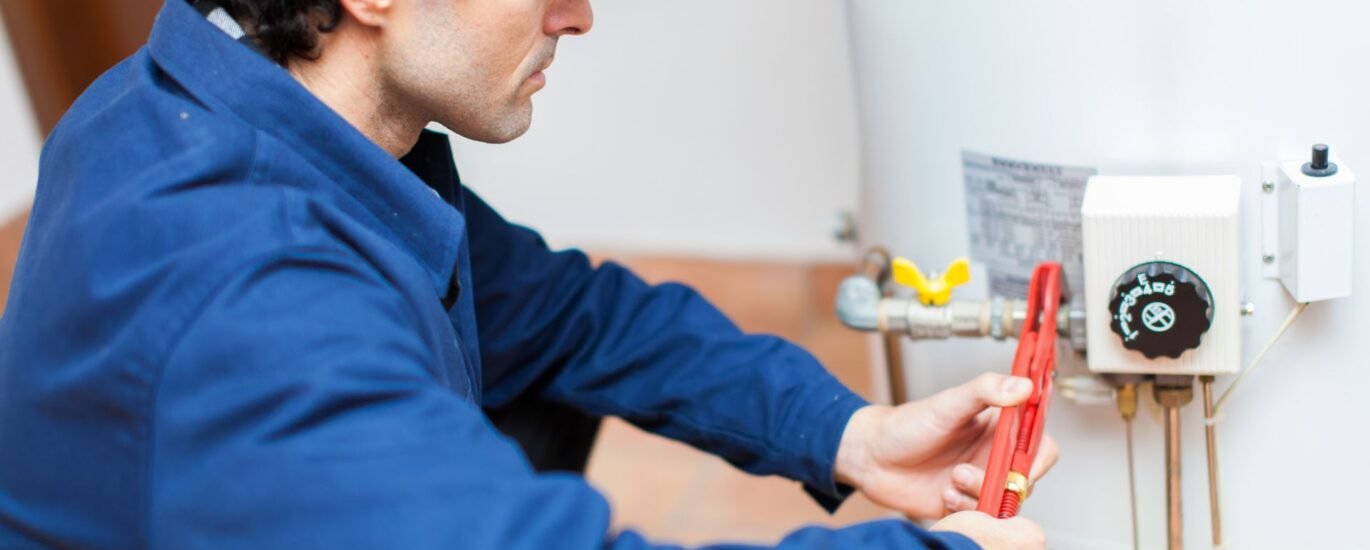Hot water is something most people take for granted—until it disappears. While water heater repair can often solve common issues, there comes a point when replacement is the smarter choice. Understanding when it’s time to retire your old water heater can save you money, frustration, and wasted energy.
Here’s what every homeowner in Monterey should know about identifying the right time for a water heater replacement, what to expect from the process, and how to make the most of your new system.
How Long Do Water Heaters Last?
Different types of water heaters have different lifespans. As a general rule:
- Traditional tank water heaters last about 8–12 years.
- Tankless models can operate efficiently for 15–20 years.
Factors like water quality, maintenance, and usage frequency all play a role. If your heater is nearing its upper age limit, start planning ahead before it fails unexpectedly.
Warning Signs That It’s Time to Replace
You don’t have to wait for a complete breakdown to know your water heater is on its last legs. Watch for these clear warning signs:
- Frequent repairs – If you’re calling for service more than once a year, the costs can quickly add up.
- Leaks from the tank – Internal corrosion can cause irreversible damage.
- Rust-colored water – This indicates corrosion inside the tank.
- Rumbling or banging noises – Sediment buildup can cause your unit to overheat.
- Fluctuating water temperature – Failing thermostats or elements cause inconsistent heating.
- Rising energy bills – Older models lose efficiency, costing you more to operate.
These symptoms usually mean it’s time to consider an upgrade.
Repair vs. Replacement: How to Decide
Here’s a general guideline:
If the cost of repairing your water heater is more than 50% of the cost of a new one, replacement is typically the better choice.
However, it’s not only about cost. You should also factor in:
- Age of the unit – Even a small repair may not be worth it if the system is old.
- Energy efficiency – New models often deliver significant savings.
- Household demand – Growing families may outgrow their current heater’s capacity.
- Reliability – Frequent breakdowns are a sign your system is past its prime.
Your Replacement Options
When it’s time to install a new water heater, you have a few different systems to choose from:
- Traditional tank water heaters – The standard option, cost-effective and familiar.
- Tankless water heaters – Provide endless hot water on demand and use less energy.
- Hybrid water heaters – Combine storage with high-efficiency technology for optimal performance.
A professional plumber can evaluate your household needs and recommend the right model for you.
What Happens During a Water Heater Replacement
Here’s what you can expect when replacing your old unit:
- Site evaluation – The technician ensures your space and plumbing can accommodate a new system.
- Utility shutoff and removal – Power or gas is turned off, and the old heater is safely disconnected and removed.
- Installation of the new heater – Plumbing, venting, and electrical connections are made according to local standards.
- Testing and final inspection – The system is filled, powered, and tested for leaks and proper function.
- System walkthrough – The technician will explain how to operate and maintain your new water heater.
The process usually takes just a few hours, depending on the complexity of the setup.
How to Get the Most Out of Your New Water Heater
A new system is a significant investment, so proper care is essential. Follow these maintenance tips:
- Flush the tank annually to remove sediment buildup.
- Inspect the anode rod periodically.
- Keep the temperature around 120°F for safety and efficiency.
- Insulate pipes to reduce heat loss.
- Schedule professional maintenance every couple of years.
With good care, your new water heater can last well beyond its expected lifespan.
Benefits of Upgrading Your Water Heater
Upgrading your system offers several advantages:
- Improved efficiency and lower monthly bills.
- Consistent hot water supply, even during peak demand.
- Better safety features and updated technology.
- Smaller footprint with compact tankless options.
- Peace of mind, knowing you won’t face sudden breakdowns.
These benefits make replacement a smart investment for both comfort and long-term savings.
Choosing a Qualified Plumbing Professional
When you’re ready to replace your water heater, look for a plumbing company with experience handling different systems and configurations. A reliable plumber should:
- Inspect your current system before making recommendations.
- Explain your replacement options clearly.
- Provide transparent, detailed quotes.
- Complete the job safely and efficiently.
- Offer clear communication throughout the process.
This ensures your installation is smooth and your system performs as expected.
Final Thoughts
Replacing a water heater may feel like a big decision, but it doesn’t have to be stressful. Knowing the signs, weighing your options, and working with an experienced plumbing professional will ensure a seamless transition.
If you’re unsure whether repair or replacement is the best route, learn more about our approach to water heater repair on the Water Heater Repair in Monterey – What You Need to Know page.
When you’re ready to get started or schedule an inspection, visit our contact page to connect with a trusted Monterey plumbing expert today.



